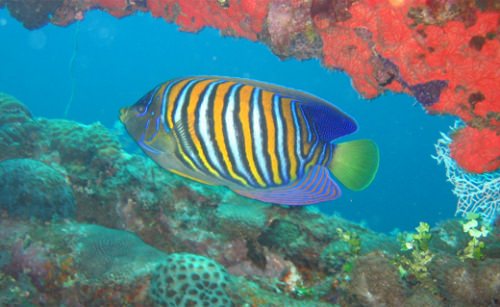Ocean acidification and rising water temperatures caused by increasing levels of carbon dioxide in the atmosphere are changing the distribution of the world’s food fish, according to research led by scientists at the University of British Columbia.
An international team of researchers compared the future of the oceans under two climate change scenarios. In one scenario, we limit atmospheric warming to two degrees by 2100, as outlined by the Copenhagen accord. In the other, we continue with the current approach, which researchers say would cause a five-degree increase in atmospheric temperatures. They say if warming continues unchecked, fish will migrate away from their current habitats 65 per cent faster, resulting in changes to biodiversity and ecosystem functions.
The new research, published today in Science, points to the need to limit emissions to help reduce the impact of rising atmospheric temperatures and acidifying oceans. The findings are intended to inform discussions at the upcoming 2015 United Nations Climate Change Conference in Paris.
“All the species and services we get from the ocean will be impacted and everyone, including Canadians, who benefit from these goods and services are vulnerable,” said William Cheung, associate professor and co-director of the Nereus Program at UBC. “On a positive note, we still have options to substantially reduce these impacts now but the longer we wait the fewer and fewer options we have.”
This study was completed by the Oceans 2015 Initiative, an international team of researchers from Europe, Australia, the U.S., and Canada. Cheung and his colleague Rashid Sumaila, co-authors of the study, examined how climate change will impact fisheries and the many coastal communities that depend heavily on fisheries resources for food and economic security.
“From looking at the surface of the ocean, you can’t tell much is changing,” said Sumaila, director of UBC’s Fisheries Economics Research Unit. “The oceans are closely tied to human systems and we’re putting communities at high risk.”
The researchers suggest taking action to protect marine ecosystems and to help communities adapt by providing education and training opportunities to diversify livelihood options. They also say it’s important to make every effort now to limit emissions.
“While some regions will see increases in some fish biomass, these gains may be only temporary if carbon dioxide emissions continues,” said Sumaila.
Agencies/Canadajournal
 Canada Journal – News of the World Articles and videos to bring you the biggest Canadian news stories from across the country every day
Canada Journal – News of the World Articles and videos to bring you the biggest Canadian news stories from across the country every day




This garbage is criminal level exaggeration!
Obviously he and his gang are trolling for funding as nothing he says is supported by empirical studies. It’s easy to create models that show anything but to claim that they predict the future is false.